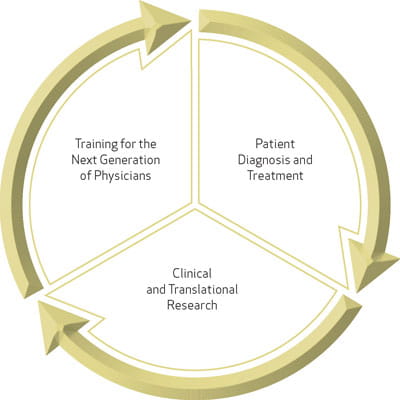About the Center
Immunological conditions are multifaceted and are further complicated when outside influences like preexisting conditions or medications lead to overlapping symptoms that increase the difficulty of diagnosing and treating the primary source.
Complex immunologic conditions are more successfully diagnosed when a team of specialists in immunologic diseases collaborates. Conducting research and training future immunologists are paramount for diagnosing and treating complex conditions and advancing the field.
Houston Methodist's Immunology Center is bringing healing and hope to patients with complex immunologic, allergic and autoimmune diseases while training the next generation to ensure a vibrant future with groundbreaking research and clinical trials.
The Immunology Center will serve as a resource to the Houston community, because Houston Methodist offers:
- Unmatched clinical expertise with demonstrated excellence in treating disease and extending life
- An institution built on progress with an uninterrupted trajectory of growth and success
- An independent academic medical center with flexibility for strong partnerships across the country and around the world and an institutional focus and commitment to translational research
- Strong leadership with the financial health and business acumen to make be successful and sustainable and the medical and scientific leadership in place to move this center forward
- A values driven organization with a values- and faith-based commitment to attend to the whole human being in all physical, emotional and spiritual dimensions
Our Director

W. Bryan Trammell Jr. Family Distinguished Chair in Allergy and Immunology | Associate Dean, Center for Clinical/Translational Medicine, Texas A&M Health Science Center


